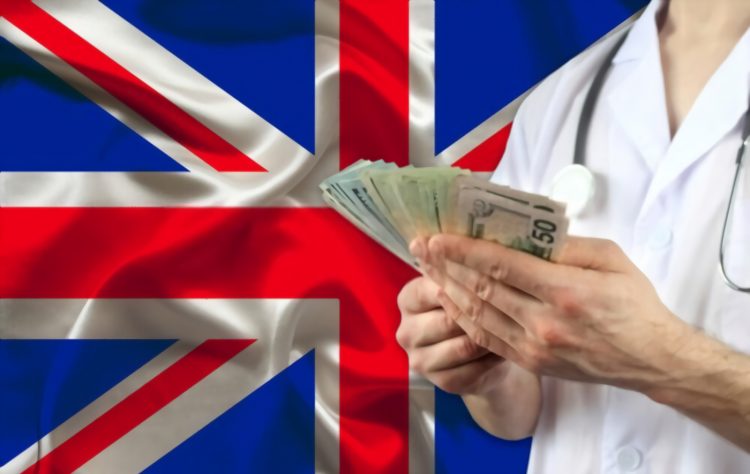How has the devaluation of wages in the UK affected the living standards in this country?
What measures has the UK government taken to reduce the value of wages in the UK?
How much has the UK inflation rate increased over the past months?
The TUC said that UK pay rises could be almost 8% below inflation later this year, the most significant drop in real wages in 100 years.
Legal disaster in the UK
With the Bank of England predicting that inflation will reach 13% in the fourth quarter of 2022, while wages will rise by just 5.25%, living standards are expected to fall by a record 7.75%. This congress emphasized that British workers and employees have not suffered such a sharp and prolonged wage decline relative to inflation since the 1920s. It’s not just a price-wage spiral, the organization warned, because the devaluation of wages in the UK is a natural disaster for wages.
Inflation forecast of 13% in the UK
Data released by the UK’s Office for National Statistics (ONS) showed that the UK economy shrank in the three months to June, as rising inflation and falling wages eroded the UK purchasing power. However, this decline was less than the 0.3 percent contraction expected by analysts and followed a 0.8 percent decline in the first quarter of 2022.
Economic recession awaits the UK
According to reports, spending in the week ending August 11 was seven percentage points lower than the previous week, reaching 97% of its level in February 2020, just before the coronavirus pandemic. The British Office for National Statistics wrote: Consumer behaviour indicators showed mostly falling or stable activity in the latest week. UK’s economy is expected to enter a new phase of wage deflation later this year, as inflation is set to hit double digits in the next few months, with the Bank of England warning last week that the country’s economy could slow down by the end of this year. It will enter its most prolonged recession since the 2008 global financial crisis. In the context of the devaluation of wages in the UK, Suren Thiru, Economics Director for ICAEW, said: “The UK economy is sliding closer to the recession, and the worst is yet to come.”
The most significant drop in wages in a century
Reports of devaluation of wages in the UK suggest that wage increases in the country will be around 5.25% after holding steady in the autumn and winter, offsetting only 20% of inflation. So that the total increase in wages is about 1 percent higher than the 4 percent before the Covid-19 pandemic, and double-digit inflation has led to the most significant wage decrease in a century.
A sharp decline in the purchasing power of the British
UK inflation hit a 40-year high of 9.4% in June, and experts predict it will rise above 13% by October. “The real value of pay continues to fall. Excluding bonuses, it is still dropping faster than at any time since comparable records began in 2001,” said Darren Morgan, ONS director of economic statistics. According to the Office for National Statistics, average salaries, excluding bonuses, grew by 4.7%. However, the cost of living has virtually wiped out the impact of these gains on purchasing power, as the cost of living has risen significantly over this period due to increasing energy and food prices. According to the data published by the ONS, the spending made with credit cards and debit cards in the UK fell sharply last week. This is a clear manifestation of the devaluation of wages in the UK.
The unprecedented increase in consumer prices in the UK
Following the devaluation of wages in the UK, consumer prices in the Eurozone have also reached their highest level in the history of the EU. Eurostat reported that inflation in this currency bloc with 19 members increased by 8.9 percent last year, the highest rate recorded. The UK’s Office for National Statistics reported a 0.2% drop in household consumption in the second quarter, offset by a positive contribution from net trade.
A decline in UK GDP
Monthly estimates also showed that UK gross domestic product fell by 0.6% in June after rising 0.4% in May. The latest data also points to growing weakness in the consumer sectors of the economy as the UK grapples with inflation hitting its highest level in 40 years. According to the report, inflation reached 9.4% in July and is expected to continue to increase until autumn, leading to decreased wages in the UK.
The need for severe economic action by the government
The Trades Union Congress (TUC) said real wages had only fallen more on one occasion, a fall of 13.3 per cent in the fourth quarter of 1922, when the ratio of compensation and price rises sharply reversed after the First World War. The only comparable figure is 7.2 percent recorded in the first quarter of 1940. The official statistics show that the average growth in total wages fell to 6.2 percent in the past two months. Following the devaluation of wages in the UK, Frances O’Grady, the TUC General Secretary, said: “The government must also get the economy back in balance again.”
Devaluation of wages in the UK and rising prices rob workers of the benefits of a more robust labour market. Wages excluding bonuses rose 4.2 percent in the first quarter, double the 2.1 percent average in the decade before the pandemic. This increase could not compensate for the rise in the cost of living. With inflation expected to exceed 10% by the end of the year and the government raising taxes, consumers are facing an almost unprecedented reduction in real disposable income.





























